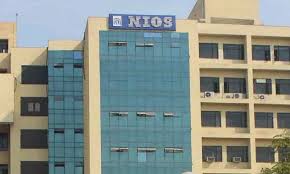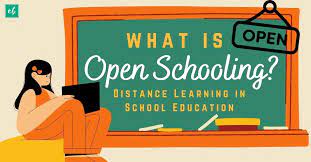
Open Schooling in India recognizes that academic success is not solely determined by adhering to a set curriculum but by recognizing and nurturing individual intelligence and unique qualities. Every child possesses distinctive strengths, and education should empower them to lead fulfilling lives based on their aspirations, whether they dream of being an artist or an astronaut.
Traditional schooling, while effective for many, fails to cater to the diverse learning needs and preferences of every child. The standardized teaching methodologies, rigid environments, and the stress of peer competition do not suit everyone. Parents often push their children to conform to age-based standards, overlooking the individual pace of learning.
Open Schooling in India: An Emerging Alternative
Open schooling emerges as a solution that accommodates various needs. Open schools offer flexibility, allowing students to drop subjects they find challenging. With an array of professional opportunities available for youngsters, parents are increasingly open to alternative education options. Open schools, such as those following the NIOS curriculum, provide extensive counseling and support, helping parents navigate the best alternatives for their child’s education.
However, in India, the concept of open schooling has been surrounded by various social stigmas. People often have misconceptions about it, leading to the creation of myths that overshadow the real facts. Let’s delve into these myths and separate them from the truth, aiming to provide clarity on open schooling in the Indian context.
Myth 1: Open Schooling is for Students Who Fail
Fact: One common myth is that open schooling is only for students who have failed in traditional schools. In reality, open schools, like the National Institute of Open Schooling (NIOS), cater to a diverse range of students. It provides an alternative and flexible learning environment, accommodating those with different learning paces, physical disabilities, or unique career aspirations.
In a world where the internet offers alternatives to study with top international schools, NIOS stands out by providing accessible and quality education. Students can pursue their High School certificate with a reputable board, ensuring a solid foundation for future endeavors.
Myth 2: NIOS Certificate Is Not Recognized
Fact: Some believe that NIOS certificate is not recognized by colleges and employers. Contrary to this, NIOS is recognized by numerous educational institutions and employers across India. After completing compulsory board exams, students can seamlessly apply for colleges, ensuring that their educational qualifications are as valid as those from traditional schools.
Myth 3: Open Schooling in India Is Only for Rural Areas
Fact: Another misconception is that open schooling in India is primarily for students in rural areas. In truth, open schooling is accessible to students across the country, irrespective of their location. The flexibility it offers makes it suitable for students in both urban and rural settings, providing an inclusive education system for all.
Myth 4: Lack of Social Interaction
Fact: Some argue that open schooling isolates students from social interactions, hindering their overall development. However, open schools recognize the importance of social development and incorporate various activities, events, and group projects to foster social skills. Additionally, students have the freedom to engage in extracurricular activities outside the academic realm.
Myth 5: Open Schooling Hampers Future Opportunities
Fact: There’s a belief that pursuing open schooling limits future opportunities. On the contrary, open schooling allows students to focus on specific careers, interests, or skills, giving them a chance to excel in areas they are passionate about. Many successful individuals have emerged from open schooling backgrounds, challenging the notion that it hampers future prospects.
Myth 6: Open Schooling is for Students with Disabilities
Fact: Open schooling in India is often wrongly associated with students having learning disabilities. While it does cater to such students, it also accommodates those who seek a non-traditional learning environment, have specific career goals, or simply prefer a more flexible approach to education.
Dispelling the above myths is crucial for fostering an understanding of open schooling in India. It’s not a last resort for struggling students but a viable, inclusive option catering to diverse learning needs. By embracing the facts, we can break down social stigmas, encouraging a more open-minded perspective on education that respects the choices and preferences of every student in our diverse nation.
Whether attending special schools, pursuing online education, or self-pacing through NIOS, open schooling provides a flexible and inclusive approach to learning. As we embrace diverse talents and learning styles, open schooling emerges not as a judgment but as a solution, ensuring every child has the opportunity to thrive academically and personally.
Explore the transformative journey with NIOS as we debunk myths and reveal facts about social stigmas around open schooling in India. Connect with Mr. Vinay Kumar at +91 6361938556 to know and understand how open schooling can be beneficial for you child. Mr. Vinay Kumar is the NIOS Coordinator at Schoolbase and he has helped hundreds of students embrace the open schooling alternative.
